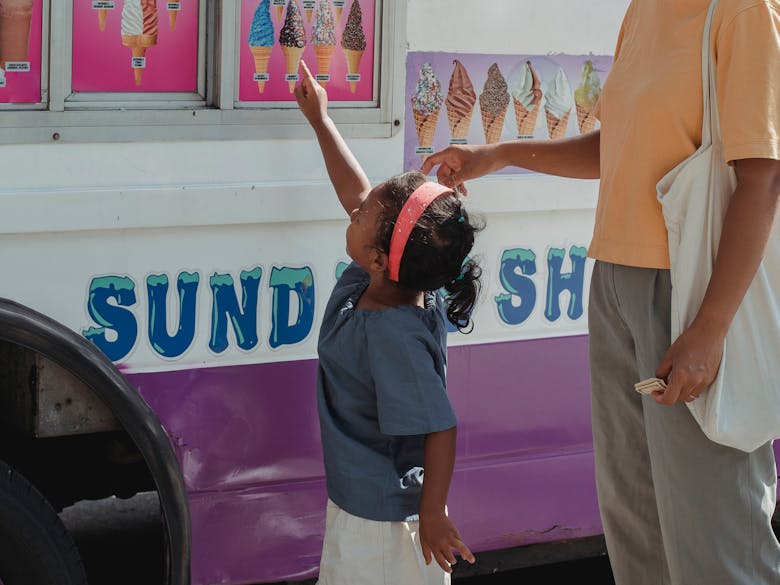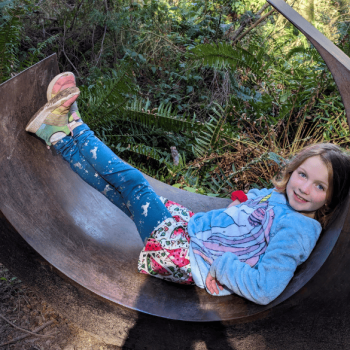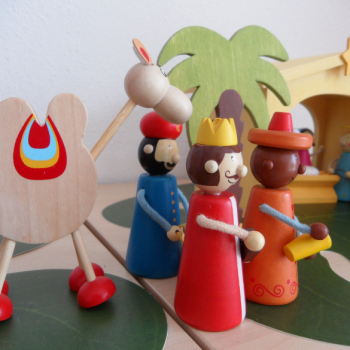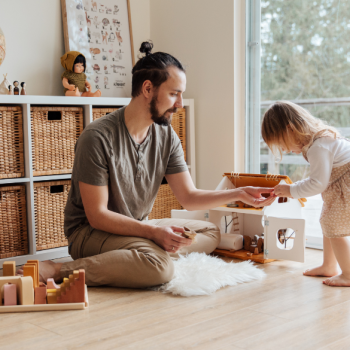
“We are a product of the choices we make, not the circumstances we face.” Roger Crawford
Your home is the best place for your children to learn to make choices. It also can be the safest place for them to make the mistakes that come with learning to make choices. Are you giving your children the opportunities to learn to make choices (and mistakes), especially with their faith? Here are some benefits of choice for your child’s faith and three choices your children want to make to help them take ownership of their faith.
Faith, Play, and Choice
God has designed our children to learn best through play, including about faith. According to Dr. Karyn Purvis, “Scientists have recently determined that it takes approximately 400 repetitions to create a new synapse in the brain- unless it is done with play, in which case, it takes between 10-20 repetitions.”
Choice has a benefit here, too. One of the characteristics of true play is that it is self-chosen. Activities that are not self-chosen, while they may be fun, are technically only playful activities, not play. Self-chosen is a necessary element for play. The choices involved make something playful or not.
The National Institute for Play writes this about the power of choice and learning:
“Examples of directed playful activities include playful classroom lessons led by teachers to facilitate learning and recess or after-school activities organized by teachers or other adults. These activities can be fun, may develop the social-emotional skills of the children participating, and can create a sense of belonging for the children that fully buy in (are engaged by the activity). But these activities are not self-chosen and self-directed and some children will not be engaged in them; for those children the activity is not playful let alone play. Children not engaged and playfully participating in the activity will not accrue the learning, SEL (socio-emotional learning) and belonging benefits that those who are engaged receive.”
Benefits of Choice for Child Development and Learning
Children also benefit from making choices. There are developmental benefits, learning benefits, and identity benefits that can impact their faith, especially in the future. Children with the ability to make choices learn from the consequences of those choices, good or bad. They grow social-emotionally, physically, and cognitively. There are some great benefits from choice for executive function skills, such as focus and self-control.
Practicing making choices at home with their faith as children empowers and equips them to make choices when they leave home for school, work, or play. It helps them to feel and enact ownership of their faith.
Types of Choices Appropriate for Kids
I am currently in a Child-Led Practitioner Certification program. We started by looking at choice for children in early childhood education programs. This is a play-based approach that I believe has so much potential for parents and children’s ministry leaders to use for discipleship, as well.
The creator, Sally Haughey, teaches four dimensions of choice for play and these also lead to five rights of children in the classroom.
Sally Haughey’s 5 Rights in a child-led, play-based classroom:
-
- Right to choose where to play
- Right to choose who to play with
- Right to choose what to play with
- Right to choose how to play
- Right to decline participation
What might this look like in our homes and with faith? It excites me to think about the joy that children would experience if they had more choice and ownership and PLAY in their discipleship. Last week I wrote about the characteristics children would choose to learn about Jesus.
Sally Haughey also said, “Joy activates the limbic system in the brain, which is the light switch for learning.” I want that for your kids!
Faith Choices for Our Kids to Own
“Jesus said, ‘Let the little children come to me, and do not hinder them, for the kingdom of heaven belongs to such as these’.” Matthew 19:14 NIV
Our job as parents is to model what it means to love God, teach about him and his Word along the way of our daily lives, and to play with our kids. We are also called to not get in the way of our children seeking Jesus in their way. “Do not hinder them.” Are your methods and restrictions hindering your children?
Here are three choices you can let your kids make to help them take ownership of their faith:
-
- To pray out loud – I believe it is a mistake to force our children to pray, especially out loud. You certainly should teach them to be quiet and respectful while others are praying, but, God wants us to want to talk to him. He doesn’t force us to pray and we as parents shouldn’t force it either. It loses the joy and privilege that it is to approach our Heavenly Father when it is forced.
- How to artistically or playfully respond to a story – Please stop assigning product-based art or crafts that are supposed to look a certain way as a way to respond to a Bible story. Coloring two fish and five loaves of bread is not helping your child to learn about the wonder and power of Jesus or to think in developmentally appropriate and deep ways about the miracles.
- To answer questions out loud – At home and church, children should be able to speak and share their thoughts and reflections or not. Silence is a form of communication that we should listen to. (A thought also inspired by Sally Haughey.) When we force kids to speak to us about their faith or to answer questions they may not want to answer, we are acting as a high priest, a go-between for our child and God. Jesus is your child’s high priest and we can trust him in that role.
Smaller possible choices:
- Story to read
- Bible to use
- Songs to sing
- Prayers to pray if you use memorized prayers
- Blessing to say at meals
- Type of cookies to make your neighbor
- To sit in worship or go to Sunday School
- To attend AWANA or other extracurricular church activities
- Plan a family devotion
- Which devotional to read
I am not encouraging you to give up your role as the primary discipler in your child’s life. I am inviting you to use choice as a tool in your discipleship belt.
What choices might you add to this list to benefit your child’s faith?














